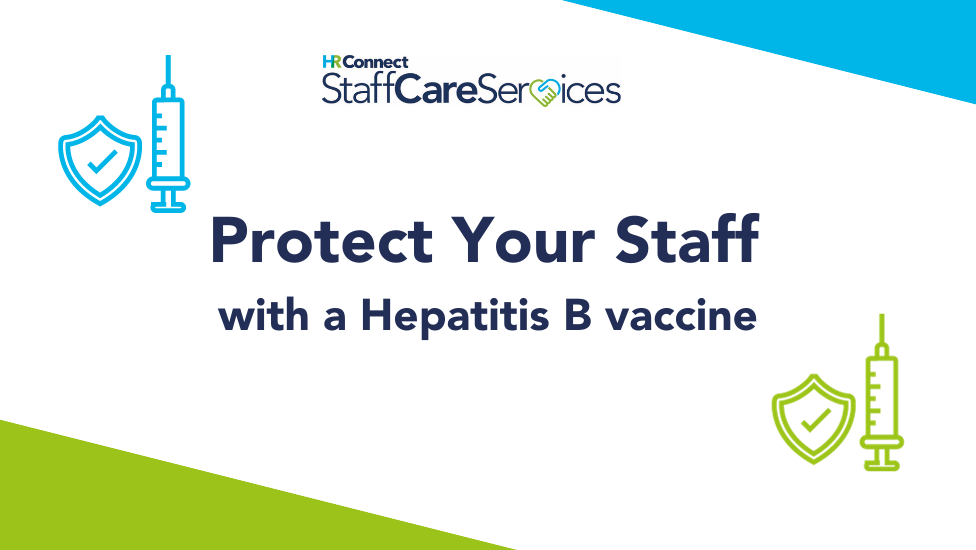
Protect your staff from Hepatitis B
Hepatitis B is a serious infection of the liver caused by hepatitis B virus (HBV). Those at risk includes education staff working with looked-after children and young people, particularly among children in special schools or living in care homes, where the likelihood of being bitten or scratched is high.

Hepatitis B is a serious infection of the liver caused by hepatitis B virus (HBV). This virus is spread through bodily fluids and those at highest risk include:
- Injecting drug users and their close contacts.
- People who change sexual partners frequently.
- Travellers to areas with a high prevalence (usually via sexual exposure [or invasive medical procedures).
- People from a country with a high prevalence (due to high risk of perinatal transmission/subsequent acquisition in endemic areas).
- Sex workers and their clients.
- Household contacts of people with hepatitis B (a case or a carrier), including close family and carers.
- Families adopting a child from a country with a high prevalence of hepatitis B.
- People receiving regular blood or blood products (such as people with haemophilia) and their carers.
- People with chronic renal failure or chronic liver disease.
- People with an occupational risk (such as healthcare workers, laboratory staff, and morticians).
- Looked-after children and young people, including those living in care homes
- Prison inmates and staff.
- Infants born to women with hepatitis B infection.
Therefore, it is important that you are vaccinated if:
· your job puts you at risk of infection.
· you have HIV.
· you have liver or kidney disease.
· you are travelling to a high risk country.
The infection usually only lasts for a few months but in some people it can be long term(lasts over 6 months). You can get Hepatitis B from:
- having sex without using a condom
- injecting drugs using shared needles
- being injured by a used needle
- having a tattoo or piercing with unsterilised equipment
- having a blood transfusion in a country that does not check blood for hepatitis B. Blood transfusions in the UK are checked for hepatitis B.
- Being bitten or scratched by someone who is infected or if there is a suspicion of infection
Hepatitis B infection is usually treated with antivirals and medication to relieve symptoms such as itchiness, pain and sickness. Seeing a liver specialist for regular checks ups is also indicated. If left untreated, chronic Hepatitis B can cause liver damage and can increase the risk of getting liver cancer.
If your risk assessment indicates that there is a risk to your workforce, then the Hepatitis B vaccination course is recommended as a prophylactic measure. This is a course of 3 vaccines given over a 6 month period followed by a blood test 6-8 weeks later to check for immunity status.
If an employee is exposed to potentially infected blood or body fluids without being vaccinated (including via needlestick, bite, or scratch injuries, contact with infected potentially material via mucous membranes [eyes or mouth], or broken skin, and unprotected sexual contact within last seven days with a person with hepatitis B), they would be advised to visit A&E where bloods are taken and stored, Hepatitis B immunoglobulin is sometimes given and the vaccine course started.
For further information, or if you would like to discuss having your staff vaccinated, please register your interest in our New Year courses of vaccines here >>

.png)
.png)
